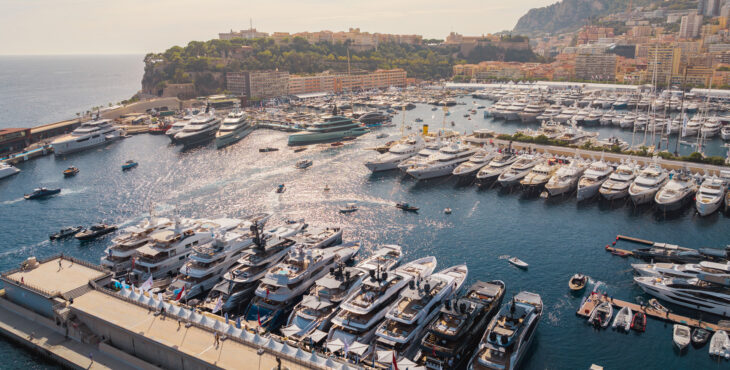Trump and his tariff war: how will it affect the nautical market?
The tariffs enacted by Donald Trump are worrying all industries, including pleasure yachting. Our interview with market expert, Marco Cuccinotto

The tariffs enacted by Donald Trump are worrying all industries, including pleasure yachting. Our interview with market expert, Marco Cuccinotto
Over the past couple of weeks, the new president of the United States, Donald Trump, has shaken markets around the world with news that he will be extending his import tariffs to the European Union, after Mexico and Canada. The areas affected the most will be mechanical, pharmaceuticals and the food industry, but it is possible that these policies lead to collateral effects on other markets, including pleasure yachting. We spoke to Marco Cuccinotto, financial consultant for Fideuram Intesa San Paolo, asking what to expect in the future and what the implications may be on the nautical market.
Will American tariffs also affect the pleasure yachting market? If so, how?
This is a complex topic that requires careful in-depth study, without letting ourselves be conditioned by the first news we have received, and it will certainly be kept under close watch over the next few months. The first question we should answer is whether or not previous tariffs have influenced, and if so how, the pleasure yachting sector. Because looking carefully at what has happened, we see it is just a continuation of the economic policy Trump started in 2018, then continued by Biden. But getting back to the present, and setting aside Trump’s rhetoric and machismo, the answer is yes: the boating industry could feel the effects, if not directly then certainly indirectly.
Tariffs and duties, have a significant impact on a number of industries and influence the supply chain, technology components and electronics, metals in general and more. Specifically we can see a rise in importation costs for vessels, which in turn would lead to increased cost for the end user, and risk reducing demand. Currently the tariffs put in to place by the American government for Mexico and Canada (as of 1 March) and China (as of 4 February) could have an average yearly impact of around $2400 for American families. In addition, if this policy leads to rising inflation, forcing the Central Bank (FED) to intervene by raising interest on debts and the cost of money in general, family expenditures could rise significantly. In addition, these tariffs could change competitiveness between American and foreign manufacturers, favouring the first. If imported products are more expensive, local manufacturers could benefit. Different consequences could impact the boating industry, from the supply chain to investments.
Do you expect countermeasures from Europe? Who would have the advantage in this situation?
I have been waiting for a response from Europe for years…If the continent would respond with a united front, through a mix of investments and support for business and residents, it could play an important role. On the contrary if, as often happens, each country decided to act on its own, then it would be less effective. However, a minimum response from Europe can certainly be expected, or at least desirable. Those who would see the advantages from this situation, would certainly be the American shipyards, at least this is the intent. The second would be those located in countries that are not affected by the “tariff war”. Personally, I believe that our companies, like Azimut-Benetti, Sanlorenzo and Ferretti, can handle the challenge and that the tariffs would have a limited impact on the superyacht sector. Things might be different for those businesses exporting vessels up to 24 metres and various components, those with a medium-size client portfolio.
In case of a trade war between the USA and Europe do you believe there could be new economic opportunities in the future?
First of all, let’s remember that tariffs, like all other forms of protectionism and economic blocks, can be worked around by using countries where they are not applied (we have seen this recently with Russia) Naturally, there are important considerations to be made regarding different aspects, from customs regulations to international agreements and rising costs. In general terms, free trade agreements can be established with other countries, creating economic areas where tariffs are reduced or removed. Then if we consider the constant growth of the middle class and that a third of the world GDP is represented by that region, Asia could become an even more interesting market.



